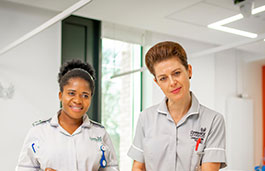Coventry University student wins national nursing award
A nursing student at Coventry University who has juggled being a mum, a learner and volunteering in Africa has won a national award.
Search
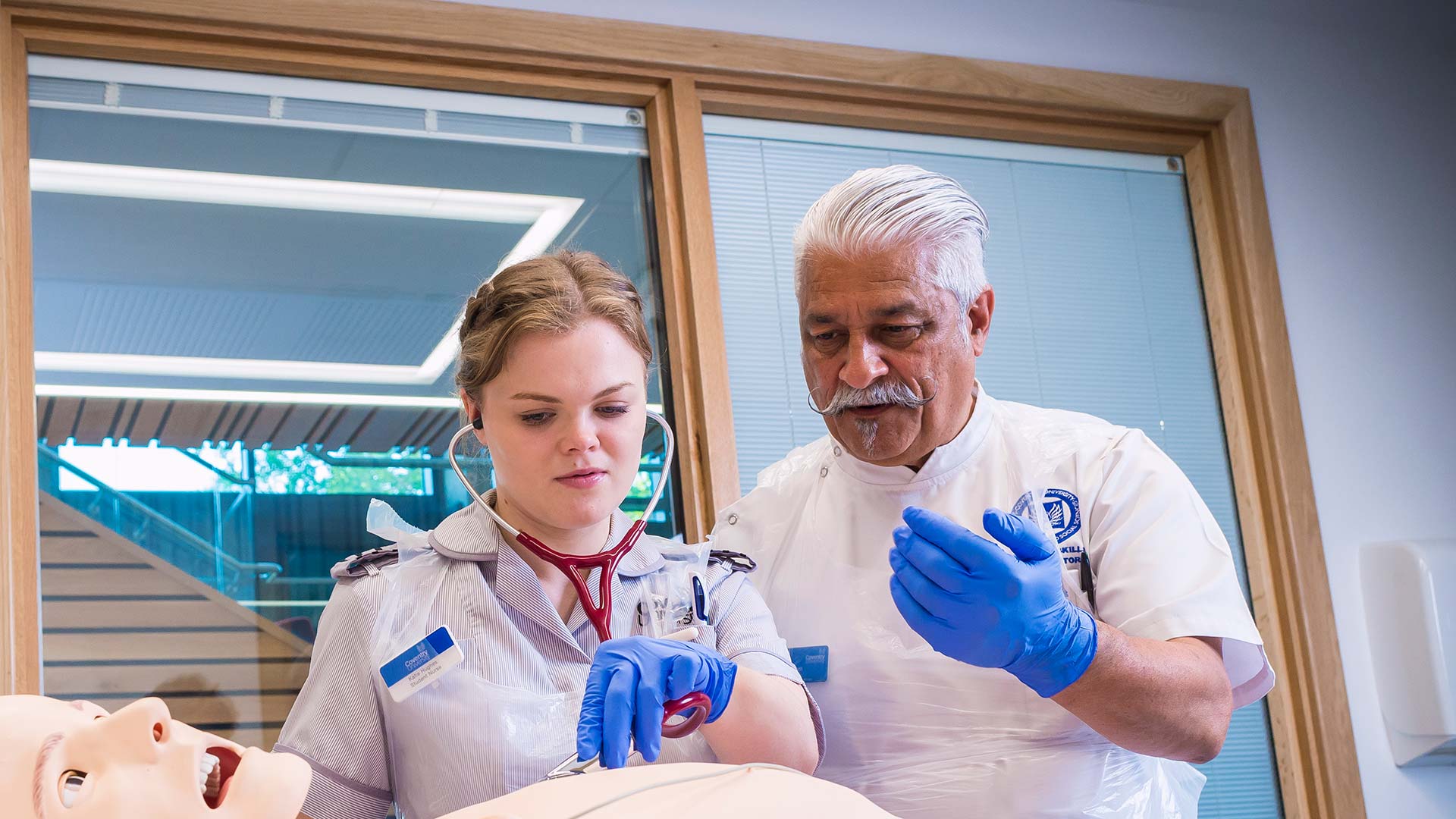
This degree combines theoretical and practice-based learning to lead you to professional registration and a rewarding career as an adult nurse.
CU Coventry (Coventry) and
Coventry University (Coventry)
Full-time
4 years full-time
B7DF
January 2026
March 2026
Our degree with foundation year could be the stepping stone you need to achieve your goals. The foundation year aims to prepare you for degree-level study and is a great way to build the confidence, skills and knowledge needed to succeed on your degree course. The foundation year of this Coventry University degree will be delivered from our CU Coventry campus. Course delivery from year one of the degree onwards will be from our Coventry University campus.
Adult nurses work to improve people’s lives by offering comprehensive physical, emotional, mental and social support to people of all ages. This course aims to equip you with the knowledge, skills and behaviours required to independently address the diverse health and care needs of individuals across the lifespan.
The foundation year course helps you develop the necessary skills for degree-level study. In addition, you will also explore fundamental knowledge in areas such as anatomy, physiology and pathology, professional practice and approaches to health and wellbeing.
If you are compassionate, enthusiastic and committed, we can support you in developing the skills to deliver professional, evidence-informed care that truly impacts people’s lives.
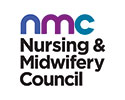
The Adult Nursing BSc (Hons) programme is approved by the Nursing & Midwifery Council (NMC) for the 2025-26 intake.1
Hear why Melissa wanted to become a nurse and find out more about the Adult Nursing course at Coventry University.
We have an excellent reputation for the quality of the education provided to trainee and qualified nurses.
Why study with us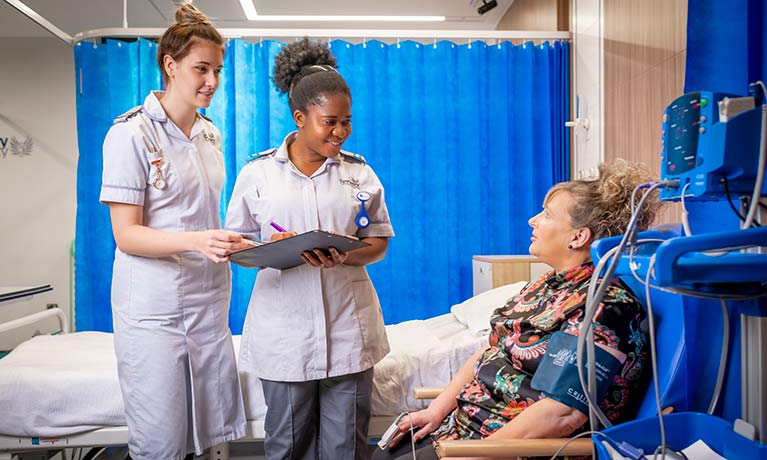
You will cover:
We regularly review our course content, to make it relevant and current for the benefit of our students. For these reasons, course modules may be updated.
Chantel Ward started her Adult Nursing degree in January 2023 after being inspired by the nurses who helped her dad through his prostate cancer battle during the Covid pandemic.
Read more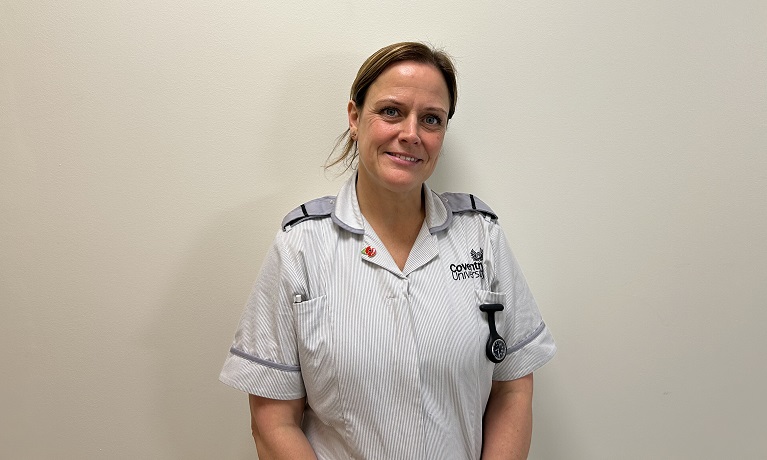
Typical entry requirements:
Got higher grades? Have you considered direct entry to the degree without foundation year?
| Student | Full-time | Part-time |
|---|---|---|
| UK, Ireland*, Channel Islands or Isle of Man | £9,535 | Not available |
| International/EU | Not currently available*** | Not available |
| Student | Full-time | Part-time |
|---|---|---|
| UK, Ireland*, Channel Islands or Isle of Man | £9,535 per year | Not available |
A non-repayable grant of £5,000 and extra payments worth up to £3,000 may be available to eligible home students for each year of degree study6. Read more about this in the NHS Learning Support Fund information booklet.
For advice and guidance on tuition fees and student loans visit our Undergraduate Finance page and see The University’s Tuition Fee and Refund Terms and Conditions.
The University will charge the tuition fees that are stated in the above table for the first Academic Year of study. The University will review tuition fees each year. For UK (home) students, if Parliament permits an increase in tuition fees, the university may increase fees for each subsequent year of study in line with any such changes. Note that any increase is expected to be in line with inflation.
For international students, we may increase fees each year, but such increases will be no more than 5% above inflation. If you defer your course start date or have to extend your studies beyond the normal duration of the course (e.g. to repeat a year or resit examinations) the University reserves the right to charge you fees at a higher rate and/or in accordance with any legislative changes during the additional period of study.
We offer a range of International scholarships to students all over the world. For more information, visit our International Scholarships page.
Tuition fees cover the cost of your teaching, assessments, facilities and support services. There may be additional costs not covered by this fee such as accommodation and living costs, recommended reading books, stationery, printing and re-assessments should you need them. Find out what's included in your tuition costs.
Applies to degree only:
The following are additional costs not included in the tuition fees:
In order to receive funding for degree with foundation year courses, you will need to complete a four-year degree programme which includes the integrated foundation year, otherwise you may be responsible for your foundation year fees. For further information, please refer to the 'Tuition Fee Loan' details in the 'Funding your undergraduate course' section of our 'Fees and finance' page.
The rights of Irish residents to study in the UK are preserved under the Common Travel Area arrangement. If you are an Irish student and meet the residency criteria, you can study in England, pay the same level of tuition fees as English students and utilise the Tuition Fee Loan.
Our foundation years are taught at CU Coventry’s Mile Lane building, a short walk from the city centre. You’re part of the university from day one, so during your foundation year you’ll have access to the wider facilities at Coventry University. Once you successfully complete your foundation year, you'll transfer over to studying your chosen degree at Coventry University, where you'll be taught on campus in the relevant academic buildings.
On graduating successfully from this course, and providing you also meet the NMC requirements, you can apply for registration with the Nursing & Midwifery Council (NMC), additional costs apply1. Successful registration enables you to practise immediately.
Coventry University is committed to preparing you for your future career and aims to give you a competitive edge in the graduate job market. The university provides a wide range of support services to help you plan and prepare for your career.
Many of our graduates find employment as qualified nurses in the NHS with a growing emphasis on community settings, in acute hospitals, military nursing, in the private and independent healthcare sector, in private hospitals, nursing or care homes. As your career progresses a number of options may open to you for example as a lecturer or specialist practitioner, advanced nurse practitioner, consultant nurse or manager.
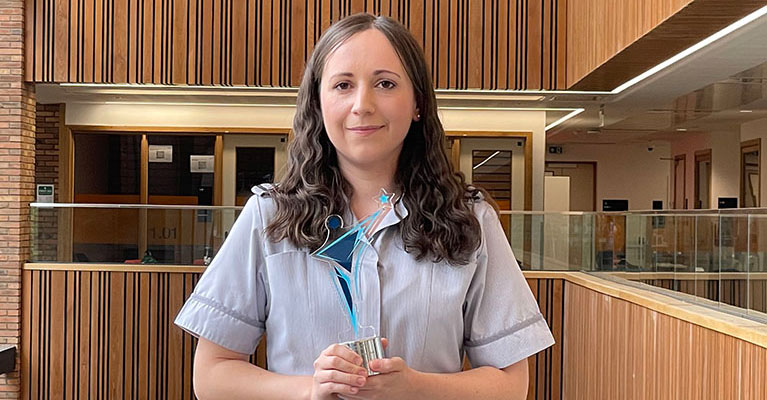
A nursing student at Coventry University who has juggled being a mum, a learner and volunteering in Africa has won a national award.
This course with foundation year is not available to international students.

